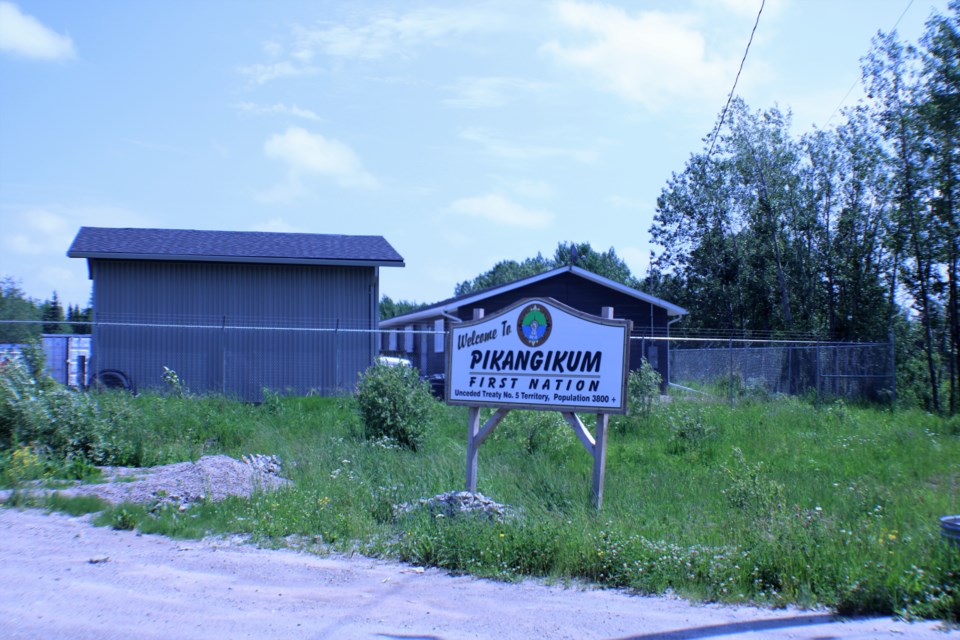PIKANGIKUM — Pikangikum First Nation has declared a state of emergency and is asking the Federal Court to order Ottawa to fix what the community is calling the “critical state” of its domestic water and wastewater infrastructure.
"When we met with Canada in February this year, I implored (Indigenous Services Canada) to provide (us) with real long-term solutions rather than temporary fixes, but even the temporary fixes they won't address,” Pikangikum Chief Paddy Peters was quoted as saying in a media release issued Thursday afternoon. “Canada makes repeated promises for improvements that never come. Meanwhile, the health of our people is at risk every day.”
“They live in conditions that would shock most Canadians, and we are told to keep studying the problem.”
According to the community, which is located just over 500 kilometres northwest of Thunder Bay, it has multiple studies in preparation for upgrades to the First Nation’s water and wastewater treatment facilities, with the most recent being in 2024. They’ve identified the infrastructure as “woefully inadequate” to meet the community’s needs, including for potable water, sanitation and firefighting, the community’s statement said.
"The Government of Canada respects the choice of First Nations, including Pikangikum First Nation, to seek the court’s assistance on the important issue of safe drinking water," Carolane Gratton, a spokesperson for Indigenous Services Canada told Newswatch in an email.
"The Government of Canada is working with First Nations communities to support access to safe and clean drinking water on reserve."
According to its active drinking water advisory file on Pikangikum, the issue is a chemical feed pump failure.
“Once the issue is fixed and water sampling is completed, the community should be able to lift the advisory,” the department’s file says, although the projected date for the lifting of the advisory is “TBD.”
According to ISC’s information, the advisory officially affects 20 homes and 36 community buildings.
However, the community pointed to a further technical assessment completed in February 2025 that “recommended a series of urgent repairs and upgrades just to preserve the status quo,” its statement said.
“Pikangikum's request for immediate federal assistance to complete those repairs remains unanswered by Indigenous Services Canada. Meanwhile, the failure of the remote Nation's aging water and wastewater infrastructure will directly endanger the health and well-being of its more than 4,000 residents.”
The community announced it has filed a motion with Canada’s Federal Court — the national trial court that hears cases that fall under certain parts of federal law. It is asking for emergency relief “to compel Canada to address the urgent water and wastewater situation,” and to provide “water and sanitation services in Pikangikum, comparable to the safety and reliability standards enjoyed by the rest of Canada.”
The community has been under its current drinking water advisory since February 2024. The community said it has seen other ones from October 2000 to July 2002, and from October 2005 to September 2019.
States of emergency over water were declared in 2000, 2011 and 2015, according to the First Nation.
“In 2025, our people still draw their drinking water from the lake because there is no trust that our treated water is safe to drink,” Peters was quoted as saying.
“It's inhumane to make our people wait any longer.”
The story has been updated to include comments from Indigenous Services Canada.
